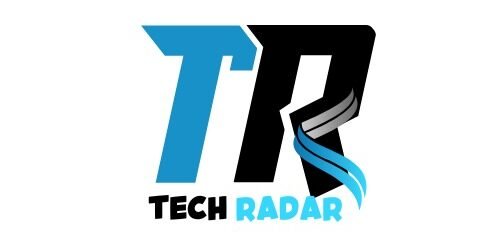Buffalo milk, often considered a nutritional powerhouse, has been consumed for centuries across different cultures. Known for its rich composition, this milk provides various health benefits that make it a staple in many diets worldwide. Recently, buffalo milk has been spotlighted as a superfood due to its ability to promote stronger bones and boost immunity. This article will explore why Wellhealthorganic Buffalo Milk is a superior choice for those looking to enhance their overall well-being.
Nutritional Breakdown of Wellhealthorganic Buffalo Milk Tag
Buffalo milk is significantly different from cow’s milk in its nutrient profile and health benefits. Here’s a closer look at the essential nutrients found in buffalo milk that contribute to its status as a superfood:
Higher Fat Content
Buffalo milk contains more fat than cow’s milk, giving it a more prosperous, creamier texture. The fat in buffalo milk is primarily unsaturated, making it heart-healthy when consumed in moderation. This higher fat content also provides more energy and is essential for absorbing fat-soluble vitamins like A, D, E, and K.
Rich in Proteins
Buffalo milk is an excellent source of high-quality protein for building and repairing tissues. Compared to cow’s milk, the higher protein content in buffalo milk makes it especially beneficial for athletes, growing children, and individuals recovering from illness. Protein also plays a significant role in immune function, making buffalo milk a good choice for bolstering the body’s defenses.
Abundance of Calcium and Phosphorus
One of the most well-known benefits of buffalo milk is its high calcium content. Calcium and phosphorus are essential for maintaining strong bones and teeth. Regularly consuming buffalo milk can help prevent osteoporosis and other bone-related conditions, making it a vital addition to the diet for those looking to enhance their bone health.
Immunity-Boosting Vitamins
Buffalo milk is rich in vitamins essential for a robust immune system, particularly vitamins A, E, and C. Vitamin A is vital for maintaining the skin’s health and mucous membranes, which act as the body’s first line of defense against infections. Vitamin E is a powerful antioxidant, while vitamin C boosts the production of white blood cells, which fight off infections.
How Buffalo Milk Strengthens Bones
Regarding bone health, buffalo milk is superior to many other dairy products. This is mainly due to its high calcium content and bioavailable phosphorus. Let’s break down how these nutrients contribute to stronger bones.
Calcium and Bone Density
Calcium is the main mineral found in bones, essential for maintaining bone density as we age. Buffalo milk provides substantial calcium, which is critical for preventing bone loss and ensuring that bones remain strong and resilient. Drinking buffalo milk regularly can help reduce the risk of fractures and osteoporosis, particularly in older adults and postmenopausal women.
The Role of Phosphorus
Phosphorus works alongside calcium to strengthen bones. Without phosphorus, the body cannot effectively use calcium to build or repair bones. Fortunately, buffalo milk contains a healthy dose of phosphorus, making it an ideal source of both minerals needed for maintaining optimal bone health.
Other Bone-Building Nutrients
In addition to calcium and phosphorus, buffalo milk contains magnesium and zinc, which are vital for bone health. Magnesium helps the body absorb calcium, while zinc forms bone matrix and mineralization. Together, these nutrients make buffalo milk potent for maintaining strong and healthy bones.
The Immunity-Boosting Power of Buffalo Milk
In today’s world, where maintaining a robust immune system is more important than ever, buffalo milk offers a wealth of nutrients that can help protect the body from illness. Let’s take a closer look at how buffalo milk boosts immunity.
Vitamin A: A Shield for the Immune System
Vitamin A plays a crucial role in supporting the immune system by maintaining the health of the skin, eyes, and mucous membranes. These tissues are the body’s first line of defense against pathogens, and vitamin A ensures they function correctly. Regular consumption of buffalo milk can help maintain the integrity of these protective barriers, reducing the risk of infections.
Antioxidant-Rich Vitamin E
Buffalo milk is also an excellent source of vitamin E, a powerful antioxidant that helps protect the body from oxidative stress. Oxidative stress can weaken the immune system and make the body more susceptible to illness. Vitamin E neutralizes free radicals and helps the immune system function efficiently, reducing the likelihood of infections and chronic diseases.
Boosting Immunity with Vitamin C
While most people associate vitamin C with citrus fruits, buffalo milk is also a valuable source of this essential vitamin. Vitamin C stimulates the production of white blood cells, which detect and destroy harmful pathogens. Including buffalo milk in your diet can help you meet your daily vitamin C requirements and strengthen your immune response.
Buffalo Milk vs. Cow Milk: Which Is Better?
There’s been an ongoing debate about whether buffalo or cow milk is better for health. While both have benefits, buffalo milk has advantages that make it a superior choice in specific contexts.
Higher Nutrient Content
Buffalo milk has more fats, proteins, and essential vitamins and minerals than cow milk. This makes it a more nutrient-dense option, especially for individuals looking to boost their energy levels and nutrient intake.
Fewer Allergens
For people who are lactose intolerant, buffalo milk may be easier to digest. Although it contains lactose, some people find that buffalo milk is less likely to cause discomfort due to its slightly different protein composition.
Longer Shelf Life
Due to its higher fat and protein content, buffalo milk has a longer shelf life than cow milk. This makes it a more practical choice for individuals who want a milk option that stays fresh longer.
FAQs
What makes buffalo milk a superfood?
Buffalo milk is considered a superfood because of its high content of essential nutrients, including calcium, protein, and vitamins A, E, and C. These nutrients support more robust bones, enhanced immunity, and overall well-being.
Is buffalo milk better for bones than cow milk?
Yes, buffalo milk contains higher amounts of calcium and phosphorus, critical for maintaining strong bones. Regular consumption of buffalo milk can help prevent conditions like osteoporosis and improve bone density.
Can buffalo milk help boost immunity?
Yes, buffalo milk is rich in immunity-boosting vitamins such as A, E, and C. These vitamins help protect the body from infections and promote a robust immune response.
Is buffalo milk safe for people with lactose intolerance?
While buffalo milk still contains lactose, some people with mild lactose intolerance may find it easier to digest than cow milk due to its different protein composition.
Does buffalo milk have more fat than cow milk?
Yes, buffalo milk has a higher fat content, giving it a creamier texture and more energy-dense. This fat is primarily unsaturated, which can benefit heart health when consumed in moderation.
How much buffalo milk should I consume daily?
The recommended daily intake depends on individual health needs. Still, one to two cups of buffalo milk can provide a significant portion of your daily requirements for calcium, protein, and essential vitamins.
Conclusion
As promoted by Wellhealthorganic, Buffalo milk offers a wide range of health benefits that make it a true superfood. Its rich nutrient profile supports stronger bones, a healthier immune system, and overall vitality. Whether you want to enhance your bone health or boost your immunity, buffalo milk is a versatile and nutritious choice. Incorporating this milk into your diet can lead to long-term health benefits, making it essential to a balanced and healthy lifestyle.











